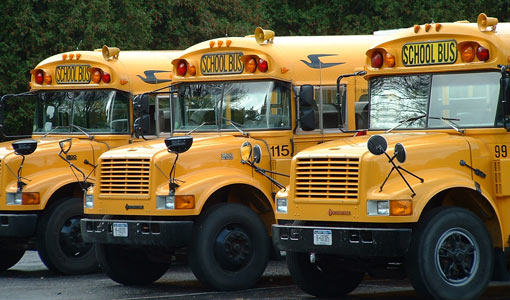Posts
Will Act 1 Changes Give Voters Greater Say?
/in News /by PAMattersState lawmakers’ last act before the summer break was to send Governor Tom Corbett a bill to limit the Act 1 exceptions that allow school districts to raise property taxes above the rate of inflation, without a voter referendum. Governor Corbett called it an essential bill of the budget season, and managed to cajole lawmakers into a compromise.
Appearing on Radio PA’s monthly “Ask the Governor” program, Corbett said the compromise should help keep school district spending under control. Would he sign a bill to further reduce the remaining exceptions? Yes. “But, let’s take that half a loaf that we have right now and see how it’s working,” Corbett says. The new law will take effect in July 2012.
Pension costs represent one of the big exceptions that lawmakers ultimately kept in the Act 1 law. Corbett says the pension woes were created by years of underfunding. “There are a lot of sins of the past that are being paid for now, by everybody,” Corbett adds.
Franklin & Marshall College political science professor Terry Madonna says it remains to be seen whether this new law will truly give PA taxpayers the chance to vote on property tax increases above the rate of inflation. “One of the things that will play out will be whether or not this law… with two exceptions, whether those exceptions are meaningful,” Madonna tells us.
As Governor Corbett awaits the opportunity to evaluate the law’s success, he notes that taxpayers are also the first line of defense against out-of-control school spending. “We’re in a municipal [election] year,” Corbett says, emphasizing taxpayers’ ability to elect their school board members.
Many school officials are already concerned that the new law will lead to additional reductions in educational programming. They know it’s difficult to convince voters to approve any hike in property taxes.
Lawmakers May Give Voters More Say on School Tax Hikes
/in News /by PAMattersGovernor Tom Corbett calls a local property tax reform bill crucial for this budget season. Specifically, he supports the removal of exceptions that allow school districts to raise property taxes above the Act 1 inflationary index, without voter approval. “I believe that if [school districts] are going to go beyond the rate of inflation than they ought to have the right to vote on it,” Corbett said on Radio PA’s monthly “Ask the Governor” program.
An apparent compromise has started to move in the State House, which would remove many exceptions and tighten several others. Executive director of the Pennsylvania Association of School Business Officials (PASBO) Jay Himes tells us the most important exceptions would remain: pensions and special education. “It’s good that they’re in. Unfortunately – particularly with regard to the pension exception – they are in with a very limited form.” Himes says state-mandated pension costs aren’t controlled by inflation. Rather, pension costs are going up by hundreds of millions of dollars every year, for the next several years.
The House voted 103 – 98 to amend SB 330 with the property tax reform language on Wednesday night. During floor debate, Republican Leader Mike Turzai (R-Allegheny) said schools could still raise property taxes up to the Act 1 index (1.4% next year). “You need referendum when it is at or above that index,” Turzai said. But PASBO’s Jay Himes says Pennsylvania’s history with school property tax referenda has been one-sided. “It’s going to be a huge uphill struggle that will take additional resources and additional efforts for school districts.”
Supporters say the change would hold school districts more accountable. On “Ask the Governor” Corbett said teachers’ contracts are one of the biggest components of increasing school budgets. “And I have seen across Pennsylvania, in the last few months, contracts that are 3, 4, 5% increases per year.”
Welcome to PAMatters.com, a new source for news and commentary from Pennsylvania’s capital. In addition to video, audio and pictures from the stories and events that affect YOU, you’ll also get some behind-the-scenes analysis via blogs from our award-winning staff of journalists.





